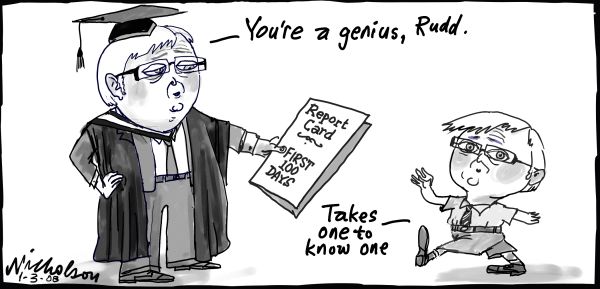Writing Report Cards
Congratulate yourself if you have made it intact halfway through your first year! It seems like a small and meaningless milestone but sometimes you find happiness in the small things. Another reason why you should congratulate yourself is because you are about to embark on something that might thwart you from wanting to get through to the end of the school year, and that is report cards. For a new teacher, often times the things happening outside of the classroom are the things that have the biggest impact on your day. Writing report cards is always burdensome. This is universal. New and veteran teachers feel exactly the same way about the process. Report cards require a lot of paperwork, curriculum jargon spitting, editing, and back checking. The process becomes even more arduous with Board-wide and perhaps school-wide restraints regarding what gets written and how. We are in a day and age where report cards must be unique to the individual but also follow strict discursive guidelines regarding how and what to say. With this being the case, I often wish I could just write anecdotal report cards for all my students. It would take a lot less preparation and it would undoubtedly be a lot more authentic. Sometimes it feels as though we are missing authenticity in education these days. With scripted, down to the minute lesson plans for this and teacher guides for that, that uniqueness of teaching and learning sometimes gets thrown to the wayside with the red-tape politics of education.
At our school, we must provide a comment bank to our principal. This comment bank consists of sample comments for A, B, C, and D students. But we are also told not to use “modifiers”; which are adverbs that attest to student achievement as correlated to the curriculum. For example, students are given a concept to learn. Some students “always” demonstrate their understanding, while others “rarely” demonstrate their understanding. By reading that, I can understand where each student would fall on the academic continuum. Creating report card comments becomes extremely difficult in regards to how they are differentiated. If I write two sentences about a subject and I do not use an adverb, how are you supposed to differentiate which student earned the A and which earned the D? If Rosalie “demonstrates how to order numbers” in grade 4 math, while Johan “understands how to round to the nearest tenth” in math how does that show that one student is an A student and one is a C student? It seems that the politics of reporting has handicapped the authenticity of writing student comments while at the same time clouded the uniqueness of each student. With the hoops we must jump through during report card season, teachers try their very best to be authentic and accurate. It just seems as though each year it gets harder.
I miss the handwritten report cards that I would get from my teacher. When you read those you thought, “How the hell did they know that? Ms. Sanjiv has me pegged to a tee”. Today’s report cards leave few parents and children able to read a report card and say a thing like that. Today, a student could grab a handful of report cards, jumble them all up, pick out one and I bet they wouldn’t be able to tell their own apart from a peer’s. Either way, report card comments have to get done so when the time of year hits, be prepared, and do them in a timely fashion or else you’ll be spending your entire weekend in front of your laptop. Yeah, weekends… you may have thought being a teacher was an 8:30 am to 3 pm job. By now, I assume you know better, but we’ll get to that another time.
I have reached that midway point of the year. And while I am congratulating myself for surviving thus far, I know that I have to get started on these first term report cards. We have a PD day right around report card time. Its primary purpose is for teachers to be able to work on their report cards so I am planning on using that day to get started and dig in deep. I hope my coffee cup is ready (Even though I don’t drink coffee!). As I think about what needs to be done, I want to offer some pertinent advice. First thing is, I suggest that you dive in and get started, and the sooner you do so, the better. Some principals will ask for a “comment bank” a few weeks prior to the report card rough draft due date. Every school will have a different protocol. Every school will also have teachers that will moan and complain about said protocol. That’s a plain fact of teaching! My strategy: if something you deem “unnecessary” is asked for, figure out a way to make it necessary. Even though some teachers complain that a comment bank will not get used when they go to make their report cards, I am going to put effort into mine so that I do refer back to it when I create my report cards. Whether you agree with a principal’s demand or not, most of the time those demands do have their benefits. Seek out what that benefit will be to you. It will pay off in the end.
[share title=”Share this Post” facebook=”true” twitter=”true” google_plus=”true”]

